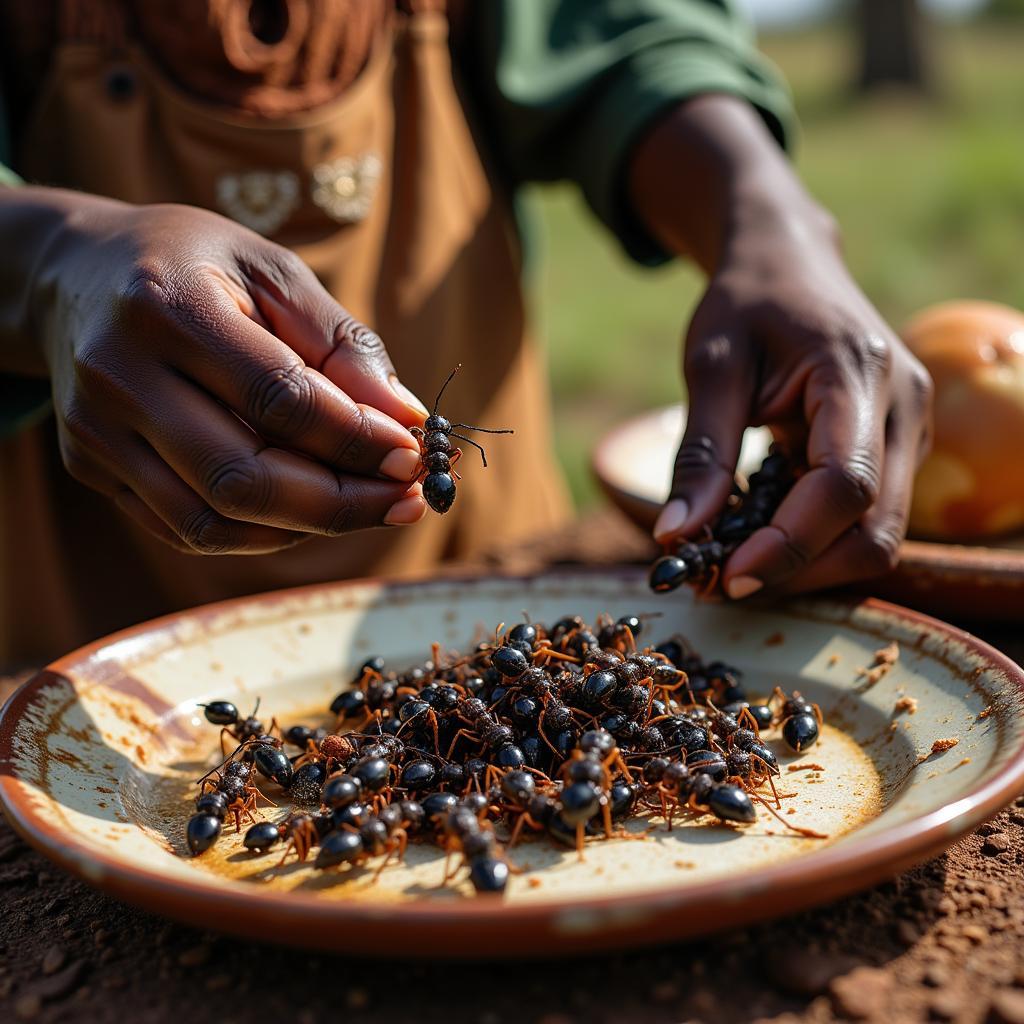African Black Ant Pill Directions: Understanding Traditional Uses and Safety
The African black ant pill has gained attention for its purported benefits, often marketed as a natural supplement. However, it’s crucial to approach this product with caution and a clear understanding of its traditional uses, potential risks, and the lack of scientific evidence supporting its efficacy. This article delves into the world of the African black ant pill, providing you with the information you need to make informed decisions about your health and well-being.
Unveiling the Origins: Traditional Uses of the African Black Ant
For centuries, various cultures across Africa have revered insects, including certain ant species, for their nutritional and medicinal properties. These traditions often involve consuming ants as part of their diet or using them in traditional remedies.
 Traditional Use of African Black Ants
Traditional Use of African Black Ants
While there is limited scientific research on the specific benefits of African black ant pills, anecdotal evidence suggests they have been traditionally used for:
- Boosting energy levels: The high protein content of ants is believed to contribute to increased stamina.
- Improving libido: Certain ant species are thought to have aphrodisiac properties.
- Alleviating joint pain: Some traditional practices utilize ants to address inflammation and joint discomfort.
Navigating the Unknown: African Black Ant Pill Directions and Dosage
Due to the lack of standardized manufacturing processes and regulations surrounding the African black ant pill, finding clear directions for use can be challenging. Packaging often lacks specific instructions, making it crucial to approach consumption with caution.
It is strongly advised to consult a healthcare professional before taking any new supplement, including the African black ant pill. They can assess your individual health status, consider potential interactions with medications, and provide personalized advice.
 Close-up of African Black Ant Pill Bottle
Close-up of African Black Ant Pill Bottle
Prioritizing Your Health: Safety Concerns and Potential Risks
While proponents of the African black ant pill tout its natural origins, it’s essential to remember that “natural” does not automatically equate to “safe.” Here are key safety concerns to consider:
- Allergic Reactions: Individuals with known allergies to insects or shellfish may experience severe allergic reactions to ant-based products.
- Contamination: The sourcing and manufacturing processes of these pills are often unregulated, increasing the risk of contamination with bacteria, pesticides, or heavy metals.
- Drug Interactions: The pill’s components could potentially interact with prescribed medications, leading to adverse effects.
Seeking Evidence-Based Alternatives: Exploring Safer Options
If you are considering using the African black ant pill for its purported benefits, it’s crucial to explore evidence-based alternatives that are supported by scientific research.
- Consult a healthcare professional: Discuss your health concerns and explore proven treatments or lifestyle modifications to address them.
- Focus on a balanced diet: Prioritize nutrient-rich foods to support your overall well-being.
- Engage in regular physical activity: Incorporate exercise into your routine to enhance energy levels and manage pain.
 Vibrant African Market with Natural Ingredients
Vibrant African Market with Natural Ingredients
Conclusion
While the allure of traditional remedies like the African black ant pill can be tempting, prioritizing your health and safety is paramount. The lack of scientific evidence, potential risks, and absence of standardized directions for use underscore the need for caution. Consulting a healthcare professional, exploring evidence-based alternatives, and focusing on a holistic approach to well-being are crucial steps in making informed decisions about your health.



